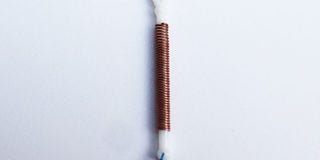How do Copper IUDs work as emergency contraceptives?

Dr I have heard that a coil can be used as emergency contraception? How does it work? What are the advantages and disadvantages? Ponsiano Daaki
Emergency contraception is a method of preventing an unwanted pregnancy after a woman has had unprotected sex.
In some areas, women may wash the vagina thoroughly or take the brown contraceptive pills in the vain attempt to prevent pregnancy.
However, women are advised to use conventional methods of emergency contraception which include the commonly used levonorgestrel (morning after) pill and the copper T intra uterine contraceptive device.
Levonorgestrel emergency contraception may prevent pregnancy by temporarily blocking ovulation, stopping fertilisation, or by keeping a fertilised egg from becoming implanted in the uterus hence being effective taken within 72 hours after sex.
Though it does not prevent STDs and should not be used as a regular method of contraception, it reduces the risk of pregnancy by up to 95 per cent.
However, it can delay or bring forward the next period, can cause nausea, vomiting, abdominal pain, fatigue, headache and breast tenderness.
Copper IUDs work by releasing copper into the uterus and fallopian tubes, which kills sperms and eggs hence preventing pregnancy up to five days after sex. So apart from being more effective than the morning after pill, it can remain as a regular contraceptive for up to 10 more years. It also has fewer side effects including cramping, spotting or heavier periods and discomfort during insertion.
The only drawback is the requirement of a medical person to insert it, the reason many more women prefer the emergency pill many of which in Uganda today are fake.
The copper IUD is not recommended for women who have a pelvic infection or get infections easily.




